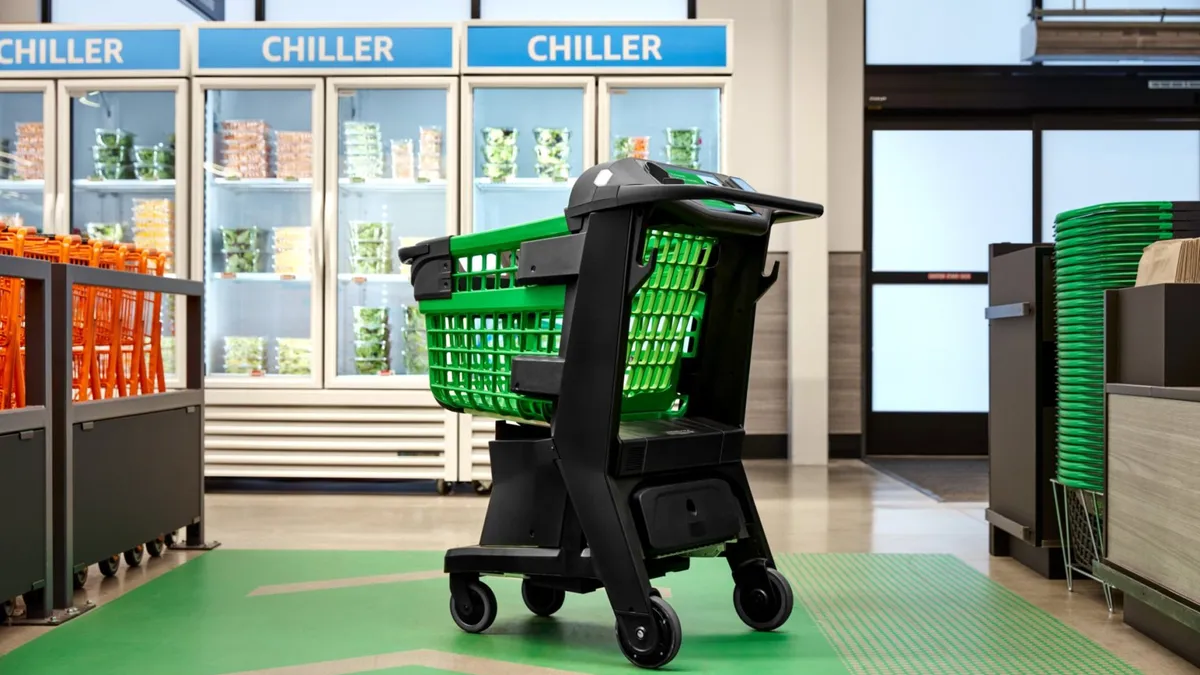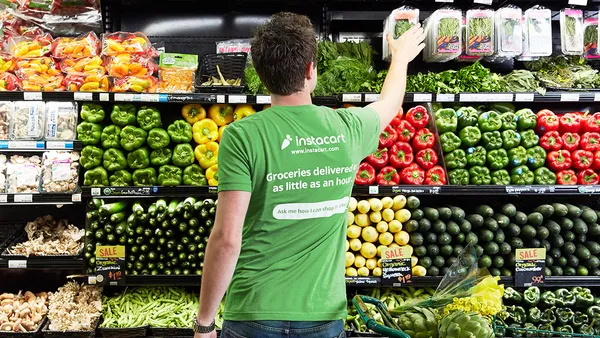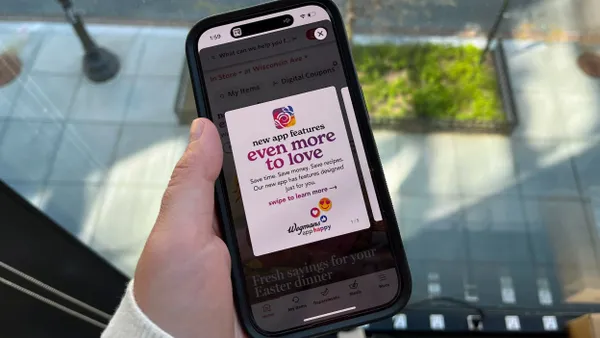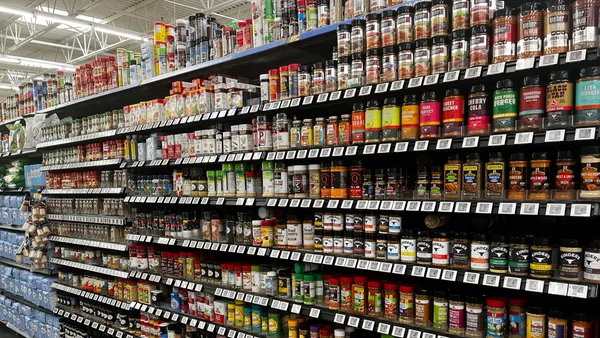The Friday Checkout is a weekly column providing more insight on the news, rounding up the announcements you may have missed and sharing what’s to come.
For all the promise Amazon’s Just Walk Out checkout-free tech held to potentially revolutionize grocery shopping, the gear had an Achilles’ heel from day one: While it lets people leave the store without stopping to pay, the system does not let shoppers know what they’ve spent until well after their shopping trip is complete.
That flaw reared its head in Amazon’s disclosure this week that it is backing away from Just Walk Out in its U.S. Amazon Fresh locations and will instead focus on its Dash Cart smart carts to speed people through its supermarkets. The company didn’t point directly to the slow receipt-generation process outright, but strongly suggested that it believes making people wait for information about what they’re spending on groceries is a non-starter — especially at a time when shoppers are hyper-focused on price.
“Customers love the ability to scan, shop, and see how much they are spending in real time,” Amazon said in an email, referring to the Dash Carts’ ability to provide a running tally of people’s purchases as they walk through the aisles.
The ability to closely track prices during a shopping trip is certainly more critical now than it was when Just Walk Out made its public debut in 2017, but people have never wanted to wait to find out what a trip to the supermarket costs. Could inflation be the reason Amazon decided the time was right to push Just Walk Out … out?
In case you missed it
Kroger unveils consumer-facing efforts for Earth Month
Beginning this month, the grocer is offering specially designed reusable bags featuring its cartoon characters known as Kroji. For each bag purchased, Kroger will donate $1 to the Zero Hunger | Zero Waste Foundation.
In addition, customers can elect to round up their purchases to the nearest dollar throughout April to support the World Wildlife Fund’s conservation and sustainability efforts. The Kroger Co. Zero Hunger | Zero Waste Foundation will match customer donations up to $50,000, according to a company announcement.
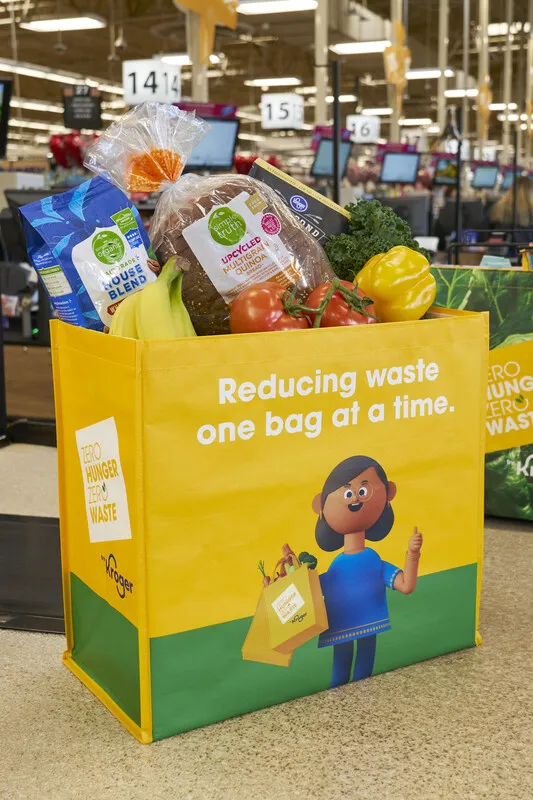
Battle for the booze sales
A newly introduced bill in Colorado’s House of Representatives would restrict alcohol sales by large grocery chains. The bill would impact licenses for about 30 stores run by mostly large grocery chains by preventing them from selling spirits, The Denver Gazette reported. The stores would still be able to sell beer and wine.
The bill is the latest in the struggle between legislators, grocers and liquor stores over alcohol sales.
Putting checks on self-checkout
A proposed California bill would put more parameters around self-checkout systems by requiring grocers and retail drug stores to have one dedicated employee monitor at most two self-checkout lanes. It would also limit self-checkout stations to purchases of 10 or fewer items.
The bill’s introduction comes as self-checkout systems attract increasing scrutiny amid shrink and labor concerns.
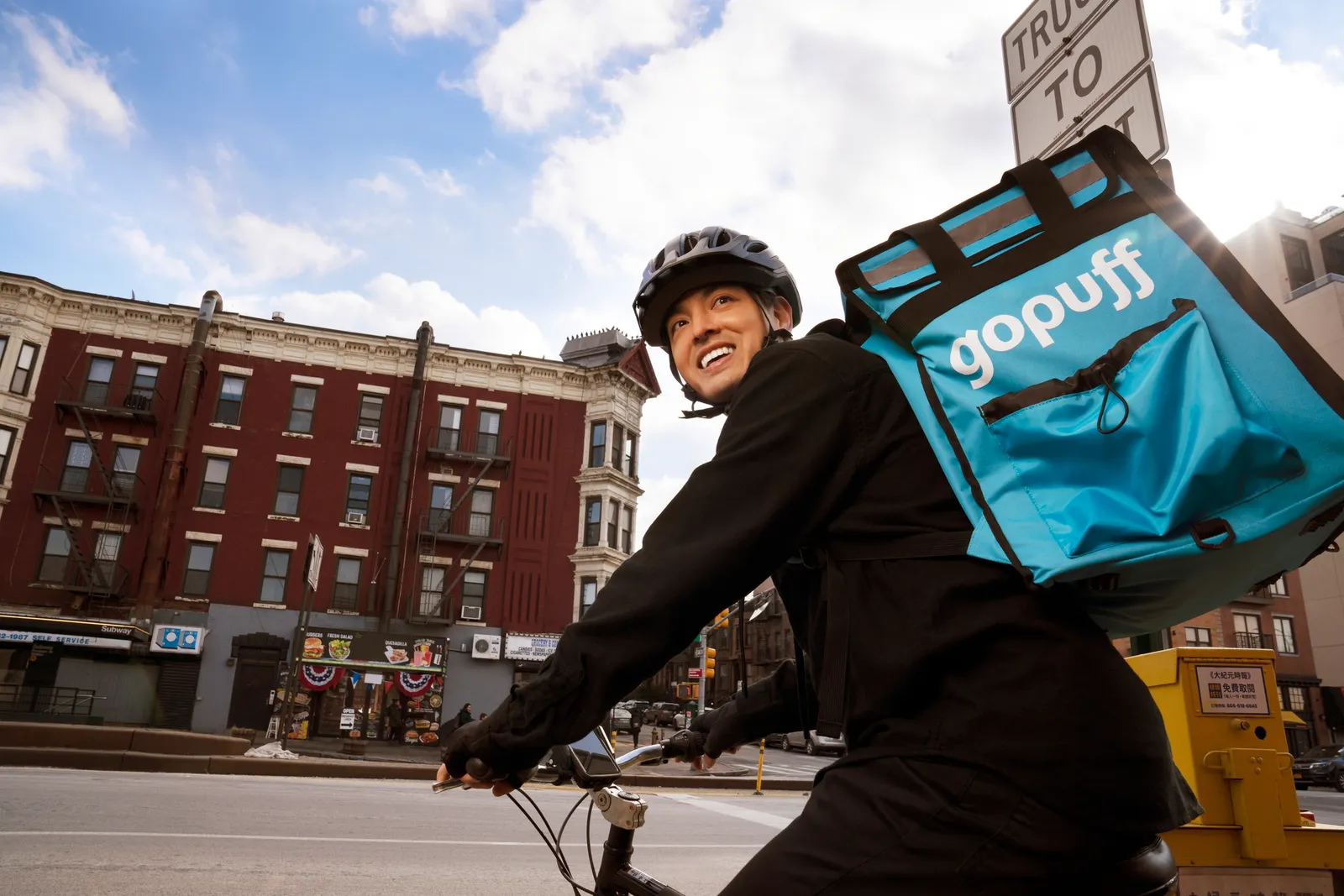
Number of the week: $1.49
That is the charge of Gopuff’s new 20-minute-or-less delivery option for its subscription program members. The option, called Fam20, comes as the quick delivery company continues to build out its Fam subscription program.
What’s ahead
Inflation figures due
The U.S. Bureau of Labor Statistics is set to announce March’s Consumer Price Index data on Wednesday.
Impulse find
An apple a day
What’s a grocer to do with 58,000 pounds of apples? Well, if you’re The Raley’s Companies, you donate them.
Two of the grocer’s banners — Raley’s and Bashas’ — teamed up with FirstFruits Farms’ “Take a Bite Out of Hunger” initiative to donate this massive amount of fruit. The grocers’ customers helped earn the donation by purchasing specially marked bags of FirstFruit Farms apples during January and February.
The grocers saw apple purchases from customers during this period increase 44% compared to last year, leading to The Raley’s Companies surpassing their 40,000-pound apple donation from last year.
Raley’s brought in 22,660 pounds of fresh apples to Yolo Food Bank in Woodland, California, while Bashas’ rounded up 35,000 pounds of apples for St. Mary’s Food Bank, United Food Bank, Yuma Community Food Bank and Community Food Bank of Southern California.


